Talking about work responsibilities can be tricky. Whether you’re a boss or a coworker, it’s not always easy to tell someone “This is your job” without sounding bossy or rude. But clear communication about who does what is important for a smooth-running workplace.
This guide will give you 100 different ways to remind people about their job duties professionally. We’ll cover phrases for managers, coworkers, and ways to clarify or redirect tasks. By the end, you’ll have plenty of polite and effective ways to discuss job responsibilities.
We’ll also look at some real-world examples, think about cultural differences, and answer common questions. The goal is to help you communicate better at work, leading to less confusion and more productivity.
Let’s dive in and explore how to talk about job duties in a way that’s clear, respectful, and gets the job done.
Phrases for Managers
As a leader or supervisor, clearly communicating expectations is crucial for team success. Here are 25 professional ways to remind employees of their duties:
- “This task falls under your area of responsibility.”
- “I’d like you to take the lead on this project.”
- “This aligns with your role and expertise.”
- “Can you please handle this as part of your regular duties?”
- “I’m assigning this to you as it’s within your job description.”
- “This is a core function of your position.”
- “I believe this task is best suited for your skillset.”
- “As the [job title], this would typically be your responsibility.”
- “Given your experience, I think you’re the right person for this task.”
- “This falls under your department’s purview.”
- “I’d appreciate if you could take ownership of this project.”
- “This is an opportunity for you to showcase your skills in this area.”
- “As discussed in your performance review, this type of task is part of your role.”
- “I’m delegating this to you as it aligns with your job duties.”
- “Can you please oversee this as it’s within your scope of work?”
- “This task requires your specific expertise.”
- “I’m entrusting you with this responsibility.”
- “As outlined in your job description, this falls under your domain.”
- “I’d like you to spearhead this initiative.”
- “This task is tailored to your position and skills.”
- “Your input and leadership are crucial for this project.”
- “This aligns perfectly with your professional development goals.”
- “I believe this task will benefit from your unique perspective.”
- “As part of your role expansion, I’d like you to handle this.”
- “This task falls within your area of influence in the organization.”
Phrases for Coworkers
When addressing job responsibilities with peers, a more collaborative approach is often beneficial. Here are 25 ways to professionally remind colleagues of their duties:
- “I think this might be more in your wheelhouse.”
- “Would you be able to assist with this? It seems to fit your role.”
- “This looks like something you’d be great at handling.”
- “I believe this task was meant for your department.”
- “Do you mind taking a look at this? It seems related to your work.”
- “I think you might be the best person to tackle this.”
- “This appears to fall under your area of expertise.”
- “Would you be comfortable taking charge of this?”
- “I think this aligns more closely with your responsibilities.”
- “Can you please review this? It seems relevant to your position.”
- “This task seems to require your specific knowledge.”
- “I think you might have more experience with this type of work.”
- “Would you be willing to take point on this project?”
- “This seems like it might be part of your regular duties.”
- “I believe this task was intended for someone in your role.”
- “Do you think you could handle this as part of your job functions?”
- “This appears to be more in line with your day-to-day tasks.”
- “I think your skills would be really valuable for this project.”
- “This seems to fall within your area of responsibility.”
- “Would you be able to oversee this as part of your regular work?”
- “Your expertise would be particularly helpful for this task.”
- “I believe this aligns well with your current project portfolio.”
- “This task seems to complement your ongoing responsibilities.”
- “Your input on this matter would be invaluable.”
- “Given your background, you might be the ideal person to handle this.”
Phrases for Clarifying Responsibilities
Sometimes, job duties aren’t clearly defined. Here are 25 ways to seek clarification:
- “Can we review the division of responsibilities for this project?”
- “I’d like to confirm which tasks fall under my role.”
- “Could you please clarify the scope of my involvement in this?”
- “I want to make sure I understand my duties correctly.”
- “Can we discuss how we should allocate these tasks?”
- “I’d appreciate some guidance on which parts I should focus on.”
- “Let’s go over who’s responsible for each aspect of this project.”
- “Could you help me understand where my role begins and ends here?”
- “I’d like to ensure we’re on the same page about task distribution.”
- “Can we establish clear boundaries for each team member’s responsibilities?”
- “I’m seeking clarity on the extent of my involvement in this project.”
- “Let’s define each person’s role to avoid any confusion.”
- “Could you outline the specific areas you’d like me to handle?”
- “I want to make sure I’m not overstepping or neglecting any duties.”
- “Can we create a clear breakdown of tasks for each team member?”
- “I’d like to understand the expectations for my role in this project.”
- “Could we review the job descriptions to ensure we’re all clear on our responsibilities?”
- “I want to confirm the parameters of my involvement in this task.”
- “Let’s discuss the division of labor to ensure efficient workflow.”
- “Can we clarify the chain of command for this project?”
- “I’d like to understand my level of authority in making decisions for this task.”
- “Could we review the project charter to clarify individual responsibilities?”
- “I want to ensure I’m clear on the deliverables expected from my role.”
- “Let’s define the key performance indicators for each team member’s responsibilities.”
- “Can we establish a clear RACI matrix (Responsible, Accountable, Consulted, Informed) for this project?”
Phrases for Redirecting Work
When someone tries to pass their work to you, here are 25 ways to redirect it professionally:
- “I believe this task is better suited for your department.”
- “This seems to fall outside my area of responsibility.”
- “I think [colleague’s name] would be the appropriate person for this task.”
- “My plate is full with my assigned duties at the moment.”
- “This appears to be more aligned with your job functions.”
- “I don’t have the necessary expertise to handle this effectively.”
- “This task requires skills that are more in line with your role.”
- “I’m focusing on my core responsibilities right now.”
- “This seems to be part of your regular workflow.”
- “I think you might be better equipped to handle this task.”
- “This falls outside the scope of my position.”
- “I believe this was intended for your team to manage.”
- “My current workload doesn’t allow me to take on additional tasks.”
- “This appears to be within your area of expertise.”
- “I think you’d be the most qualified person to handle this.”
- “This task seems to require your specific knowledge and skills.”
- “I’m not authorized to take on responsibilities outside my role.”
- “This looks like it should be part of your department’s workflow.”
- “I think you’d be the best person to oversee this project.”
- “This task seems to align more closely with your job description.”
- “Given the nature of this task, it falls under your domain.”
- “This project requires the specific skill set that your role encompasses.”
- “I believe this aligns more with your departmental objectives.”
- “This task would benefit from your specialized knowledge in the area.”
- “Considering the scope of this project, it fits better with your role and responsibilities.”
Situational Examples
To better illustrate how to use these phrases effectively, let’s consider a few workplace scenarios:
Scenario 1: Manager Delegating a Task
Context: You’re a marketing manager assigning a social media campaign to a team member.
Example: “Sarah, I’d like you to take the lead on our upcoming Instagram campaign. As our social media specialist, this aligns perfectly with your role and expertise. It’s a great opportunity to showcase your skills in content creation and audience engagement.”
Scenario 2: Peer-to-Peer Task Clarification
Context: You’re working on a team project and notice a task that the IT department should handle.
Example: “Hey John, I noticed we need to update the server configurations for this project. That seems more like your wheelhouse. Would you be able to take charge of that part? Your expertise in IT infrastructure would be really valuable here.”
Scenario 3: Seeking Role Clarification
Context: You’re starting a new project and want to ensure you understand your responsibilities.
Example: “Before we get started, I’d like to confirm the division of responsibilities for this project. Can we go over which tasks fall under my role and which areas others will be handling? I want to make sure we’re all on the same page to avoid any confusion down the line.”
Scenario 4: Redirecting Misaligned Work
Context: A colleague from another department tries to hand off a task that’s not your responsibility.
Example: “Thanks for bringing this to my attention, but I believe this task is better suited for your department. It seems to require specific knowledge of your processes that I don’t have. I think you or someone on your team would be the most qualified to handle this effectively.”
Cultural Considerations
When communicating about job responsibilities, it’s important to consider cultural differences in the workplace. Different cultures may have varying expectations regarding hierarchy, directness, and professional relationships. Here are some tips for navigating cultural considerations:
- Be aware of power distance: In some cultures, there’s a greater emphasis on hierarchy. Adjust your language accordingly when speaking to superiors or subordinates.
- Consider communication styles: Some cultures prefer direct communication, while others value indirect or implied messages. Tailor your approach based on your audience.
- Respect collective vs. individual focus: Some cultures prioritize group harmony over individual responsibilities. Frame your messages in a way that acknowledges team goals.
- Be mindful of face-saving: In many cultures, preserving dignity is crucial. Avoid public criticism and offer ways to maintain a professional image when discussing responsibilities.
- Understand time orientation: Different cultures have varying perspectives on time management and deadlines. Be clear about expectations while respecting cultural norms.
Frequently Asked Questions
Q1: How do I tell my boss that a task isn’t my responsibility without sounding insubordinate?
A: Focus on your current workload and seek clarification. You might say, “I want to make sure I understand my priorities correctly. This new task seems to fall outside my usual responsibilities. Could we discuss how it fits with my current workload and duties?”
Q2: What if a coworker constantly tries to pass their work to me?
A: Address the issue directly but politely. Try saying, “I’ve noticed you’ve been asking me to handle several tasks that seem to be part of your role. I’m happy to help occasionally, but I need to focus on my responsibilities. Can we discuss a better way to manage our workloads?
Q3: How can I remind a team member of their duties without micromanaging?
A: Frame it as a collaborative effort. You could say, “I noticed this task hasn’t been completed yet. It’s an important part of your role that impacts our team’s success. Is there anything I can do to help you prioritize
Q5: How do I handle a situation where job responsibilities overlap between colleagues?
A: Suggest a team meeting to clarify roles. You might propose, “I’ve noticed some overlap in our duties which is causing confusion. Could we schedule a brief meeting to review and clearly define each person’s responsibilities?”
Wrapping Up
We’ve covered a lot of ground on how to talk about job duties. The main thing to remember is that it’s okay to speak up about who should be doing what. It’s not about avoiding work or blaming others – it’s about making sure everyone knows their part.
Using these phrases can help keep things running smoothly at work. They can stop misunderstandings before they start and help everyone focus on what they do best.
Don’t worry if it feels awkward at first. Like anything, it gets easier with practice. The important thing is to keep trying. Clear talk about jobs helps everyone in the long run.
Remember, a workplace where everyone knows their role is usually a happier place to be. So go ahead and use these phrases when you need to. Your team will thank you for it!


